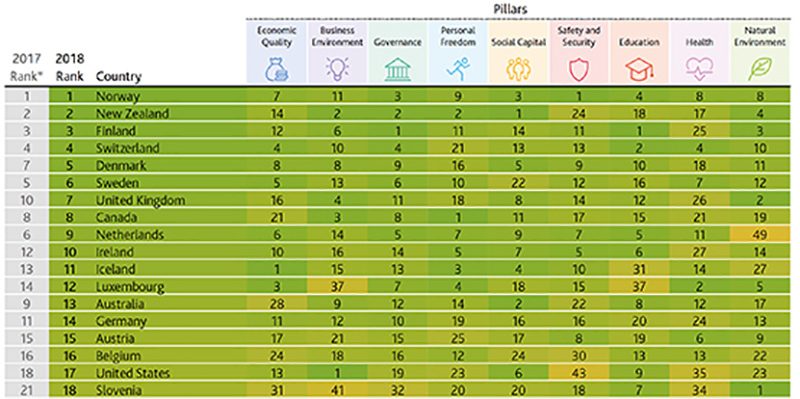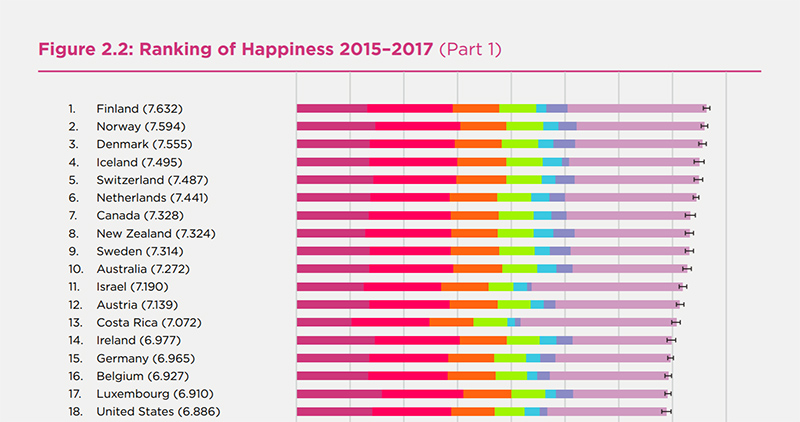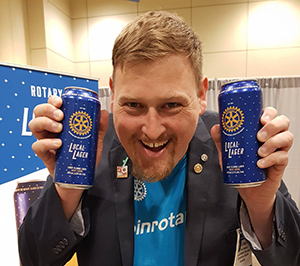Are Rotarians happier and healthier than most people in society? Although I could find no article which definitively answers that question, there is plenty of evidence from research that volunteering in a community through an organisation makes you happy with the result that you are more likely to be healthier as well. It is especially true if the benefits that accrue are to your community.
In the 70s His Majesty Jigme Singha Wangchuck King of Bhutan created the Gross National Happiness index of his people’s health and well being as a sign of progressive development. In 2011, the UN General Assembly Resolution 65/309 invited countries to measure the happiness of their people and use it as a guide to public policy.
As a result, the Legatum Institute publishes an annual “prosperity index.” ranking 149 countries on nine “pillars”: Economic quality, Business Environment, Governance, Personal Freedom, Social Capital, Safety and Security, Education, Health and Natural Environment. Meanwhile, another “Happiness” index by John F Helliwell and associates using slightly more social categories (Dystopia & Residual, GDP per capita, Social Support, Health Life Expectancy, Freedom to Make Life Choices, Generosity, Perceptions of Corruption) ranks 9 of the same countries in the top 10. The United States although not in the top ten ranks 17th and 18th respectively. (For additional countries click on the links above)
The Legatum Institute Prosperity Index

The Helliwell Happiness Index

You will notice that Generosity which can be defined as both giving of your time and energy as well as giving money is more precisely defined by Helliwell than the “Social Capital” at Legatum. Psychology Today reported on a University of Michigan study which found that those who volunteered regularly had death rates two and a half times lower than those who did not volunteer. They postulated that generosity supports your immune system.
A University of British Columbia study found that spending on others such as loved ones or charities by people with high blood pressure lowered their BP equal to the impact of taking anti-hypertension medication. Those who spent on themselves had no benefit at all.
Three additional resources all describe the same benefits:
Volunteering: A Formula For Help And Happiness by Kathleen Taylor-Gadsby at the Forbes Council
Volunteering and its Surprising Benefits by Jeanne Segal, PhD and Lawrence Robinson at Harvard Health
Volunteering Makes You Happier – Here’s Why by Mark Horoszowski, Co-founder of MovingWorlds.org,
The benefits of membership in Rotary appears large in each of these articles. In capsule form they are:
1. Volunteering connects you to others
- Make new friends and contacts
- Increase your social and relationship skills
- Passes on the benefits to your children as they learn what they see
2. Volunteering is good for your mind and body
- Helps counteract the effects of stress, anger, and anxiety
- Combats depression
- Makes you happy
- Increases self-confidence
- Provides a sense of purpose
- Helps you stay physically healthy
3. Volunteering can advance your career
- Teaches valuable job skills
- Gains career experience
4. Volunteering makes you happier:
- Giving time makes you feel that you have more time
- Creates social bonds that make you feel loved
- Extends empathy and empathy leads to a life of satisfaction
And if you don’t believe any of this do a Google IMAGE search under the term Smiling Rotarians and you will see the evidence first hand.
If you like this article please click on the  icon to the bottom right.
icon to the bottom right.
 icon to the bottom right.
icon to the bottom right.